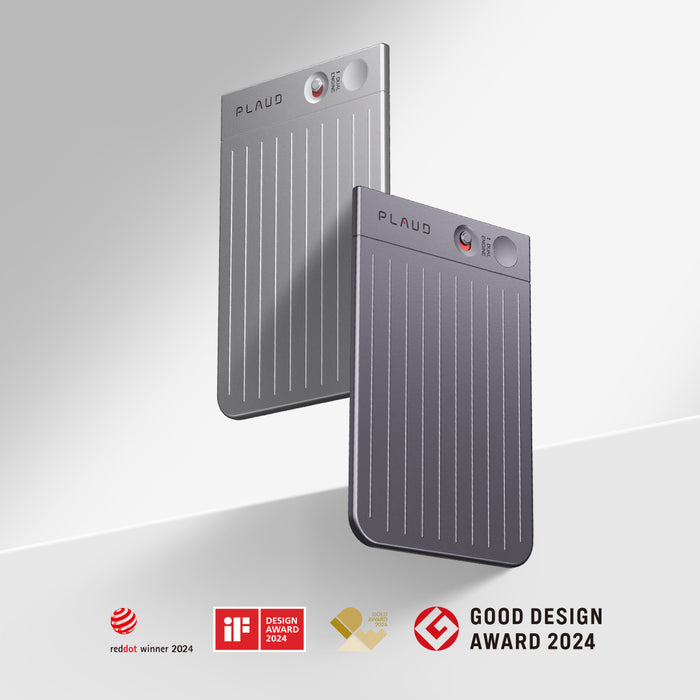Unlock the Future: Discover AI Voice Recorders That Transform Your Words into Text Instantly!
In an era where time is of the essence and efficiency reigns supreme, AI voice recorders with transcription capabilities have emerged as revolutionary tools. These devices not only capture spoken words but also convert them into text with remarkable precision. As our lives become increasingly digital, the relevance of such technology cannot be overstated. Whether you’re a busy professional needing to take notes during meetings, a journalist conducting interviews, or a student looking to streamline your study process, AI voice recorders can save you time and enhance productivity. By automating the transcription process, these devices free you from the tedious task of manual note-taking, allowing you to focus on what truly matters – the content of your conversations and ideas.

Understanding AI Voice Recorders
AI voice recorders are sophisticated devices that leverage advanced voice recognition technology to capture audio and convert it into written text. At their core, these recorders utilize algorithms trained on vast datasets to understand spoken language, detecting nuances in tone, accent, and context. Unlike traditional recording devices that simply capture sound, AI voice recorders are equipped with features that allow them to analyze and transcribe audio in real-time. This technology has evolved significantly, with many devices now offering features such as noise cancellation, speaker identification, and multilingual transcription. These capabilities set AI voice recorders apart from their predecessors, making them invaluable tools for anyone seeking to efficiently document their thoughts and conversations.
Benefits of Using AI Voice Recorders with Transcription
The advantages of AI voice recorders with transcription capabilities are numerous. First and foremost, they save time. Imagine attending a lecture or a meeting and being able to focus entirely on the discussion without the distraction of taking notes. With the automatic transcription feature, you can revisit important points without missing a beat. Furthermore, these devices offer impressive accuracy, reducing the likelihood of human error that often accompanies manual note-taking. Accessibility is another key benefit; transcribed text can be easily stored, searched, and shared, enhancing collaboration in professional settings. Moreover, for those who may struggle with writing or typing, such as individuals with disabilities, AI voice recorders provide an inclusive solution to capture and organize thoughts seamlessly. Ultimately, the integration of this technology into daily routines can significantly enhance productivity in both personal and professional contexts.
Key Features to Look for in AI Voice Recorders
When searching for the right AI voice recorder, it’s essential to consider several key features. Audio quality is paramount; a device that captures clear sound will ensure high transcription accuracy. Look for models that offer noise reduction capabilities, especially if you’ll be recording in busy environments. Additionally, transcription accuracy varies between devices; some may struggle with certain accents or jargon. User-friendly interfaces are also crucial; a device that’s easy to navigate will enhance your overall experience. Compatibility with various devices, such as smartphones and laptops, allows for seamless integration into your existing workflow. If you regularly record meetings, consider models with features like cloud storage for easy access and sharing. Ultimately, understanding your unique needs will help you prioritize these features effectively.
How to Choose the Right AI Voice Recorder for You
Selecting the ideal AI voice recorder involves evaluating your specific requirements. Start by considering your budget, as prices can vary significantly based on features and brand reputation. Next, think about the intended use; will you primarily use it for business meetings, interviews, or personal notes? This will influence the features you prioritize. For instance, if you travel frequently, battery life and portability may be critical factors. It’s also wise to conduct thorough research, including reading user reviews and comparisons, to gain insights into the performance and reliability of different models. Personal anecdotes from friends can also be helpful; a friend who successfully uses an AI voice recorder for interviews might provide insights that could inform your decision. By taking the time to evaluate your options and gather information, you can find a device that perfectly meets your needs.
Maximizing Productivity with AI Voice Recorders
In summary, AI voice recorders with transcription capabilities represent a significant advancement in personal and professional productivity tools. With their ability to streamline note-taking, enhance accessibility, and improve accuracy, these devices are becoming indispensable in our fast-paced digital world. Choosing the right AI voice recorder is crucial to maximizing its benefits, as the right features can significantly enhance your workflow and organization. As you explore your options, consider how this technology can be integrated into your life, making your tasks easier and more efficient. Embrace the future of recording and transcription, and unlock the potential for improved communication and productivity.











تعليقات